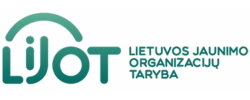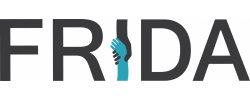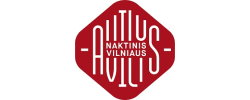
Creating equality, awareness and participation of minority youth in Europe by sharing experiences and creating practices
Type of activity: Community College, August 2007. Nine days at a folk high-school in the Copenhagen area, Denmark. Organised in cooperation by Tolerant Youth Association, Lithuania and ACC-Copenhagen (Association for Community Colleges).
Main theme: To create intercultural awareness of gender and sexuality in Europe – among participants and on an European level through concrete awareness projects.
Nature of project: With this event the organisers wish to address and advocate issues of equality, gender and sexuality in Europe. Through the methodology of informal education and intercultural learning the issues of discrimination, violence, social exclusion and isolation among others will be addressed in relation to the everyday reality of youth coming from EU member states and candidate countries. The need to actively assist and engage disadvantaged or minority youth on all levels of life has been neglected, and words such as “equality”, “awareness” and “equal access” have merely been a passive item on many European agendas. Within this community college we will explore different possibilities on how we, young activists and individuals, can become key players within the national as well as European space and change the passive status of equality of gender and sexuality into an active one.
Target group/Participants: 50 youth activists from European organisations working with gender and sexuality issues. The organisers have identified two focus groups of minority and disadvantaged youth through wish we want to address the main topics of gender and sexuality: Young women and lesbian, gay, bisexual and transgender (LGBT) youth. A combination of experienced and less experienced participants will be sought and participants should wish to take part in the planning and implementation of an awareness project on a regional level in Europe.
Fundraising: The EU Commission, European Youth Foundation, The Nordic Council, participant fee, private foundations, embassies.
Aim: To share experiences of gender and sexuality from different European regions and there through create practices to overcome discrimination based on notions of gender and sexuality. We aim to adress and define issues that young people representing minority groups deal with on a daily basis from a local as well as European perspective. We want to explore how youth through activities and initiatives can define and adress different forms of inequality and discrimination, influence policy-making and concretely use and act upon legislation within the area of equal opportunities and equal access.
Main objectives:
- To identify, understand and adress issues that European youth faces concerning equal opportunities and equal access in relation to gender and sexuality.
- To equip youth leaders and youth activists with information, knowledge and tools that will strengthen their efforts at addressing the issues of equality and awareness within projects they work on in their organisation.
- To further develop strategies, methodology and activities in order to address in/equality with the purpose to influence decision-making policies on a local, regional and European level.
- To strenghten cooperation, networking and sharing of information and experience among organisations and active youth working on the topic of in/equality in relation to the two focus groups: young women and LGBT youth.
- To exchange knowledge, best practices and further recommendations that will influence and better the situation of minority and disadvanted youth in their own respective cultural and national context.
Description of the project:
The community college falls in three parts:
- Background: To give a broad introduction to the area of gender and sexuality, so that the participants will get a basis for understanding the problem area, conceptual tools to work and think with and a foundation for addressing the problems of gender and sexuality, which they are experiencing in their everyday life.
- Creative workshops: To identify the most pressing and problematic issues of gender and sexuality that the participants are experiences in their local environment and try to find ways of addressing these in terms of creating concrete project proposals. The workshops will be based on the participants’ experiences of life and past practices, and in working creatively and interactively the participants should go beyond normative thinking and try to expand on already proven projects and develop new and innovative ways of addressing and making awareness about the issues of gender and sexuality. The project proposals will altogether be made into a catelogue of ideas giving suggestions for future ideas and ways of realising these.
- Project develpment: Based on the catelogue of ideas the participants should in self-selected groups plan 6-8 projects that aim to create awareness about gender and sexuality. The vision is to create 1-2 projects in different regions of Europe, e.g. the Baltic, the Balkans, Scandinavia, the Iberian peninsula. The actualisation and realisation of the individual projects are depended on a critical mass of ressoucers, which is more likely to be found on a regional basis, than a national one. And similar practices are more likely to be useable in a regional context, than in a pan-European one. Furthermore the organisers can support and help each others and learn from the previous projects in the region. An example could be a media conference on creating awareness about gender and sexuality among journalists in Estonia, Latvia, Lithuania and Poland. All countries which share and experience similar problems regarding the media’s preconceptions of for instance homosexuals.
Topics covered:
Background:
a. Representation of gender and sexuality in the media (newspapers, tv, films)
b. Changing gender roles and debating the concept of family
c. Sexuality – genes or social construction?
d. Etc.
a. Presentation by country/region. The presentation should address the dilemma between national legislation and then the actual practices – as experienced by the participants, i.e. legislative lacks, notion of homophobia, hate speech, the reality of women’s emancipation, etc.
- Legal definitions and rights of gender and sexuality in an European context.
- Cultural diversity lessons, e.g.
- National differences.
Creative workshops with facilitators (6 groups):
(phase 1)
a. Street happening
b. Political lobbying
c. Media conference for journalists
d. Article writing
e. Creation of education material
- Identification of problems of gender and sexuality in Europe
- Defining and qualifying problems
- Prioritisation of problem issues(phase 2)
- Finding ways of overcoming and challenging the selected problem issue/area
- Suggestions of projects, e.g
- Contemplating the realistics and userability of the project(phase 3)
- Production of a catalogue of ideas (project ideas and suggestions of best practices)
Project development (regional basis):
a. Fundraising
b. Project management (conceptual tools on planning, strategy and implementation)
c. Media
d. Opinion and decision makers
- Groups select a problem issue and define a project proposal based on the catelogue of ideas.
- Professional input on:
- The groups make a plan for future action
Methodology: The aim of the overall methodological concept is to challenge the notion of gender and sexuality which are taken for given in the everyday life of people. The idea is through various teambuilding and interactives excercises, e.g. theater sports, to open up for a free, open-minded and creative work approach. By working on the level of the entire body – feeling, sensing and experiences – to go beyond the normalisation, stereotyping and intellectualising of the concepts of gender and sexuality.
Various methods will be employed throughout the community college:
Background: Lectures, group discussions/activities, round-table discussions, ice-breakers.
Creative workshops: Workshops working with brainstorming, reflexive and associative techniques. Presentations, plenum discussions, teambuilding exercises.
Project development: Group work, lectures, project presentation – feedback session, expert input to groups.























